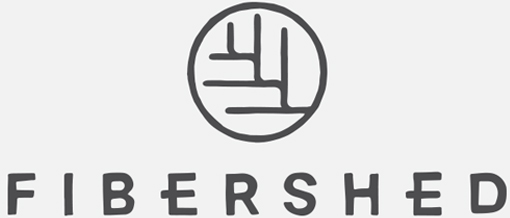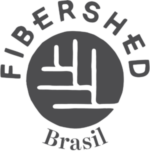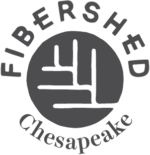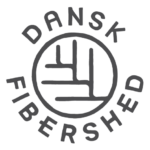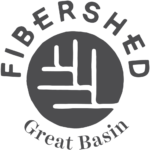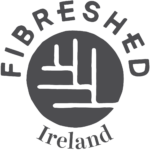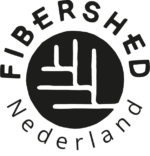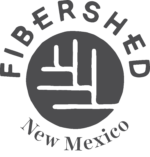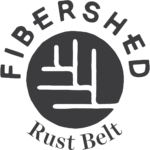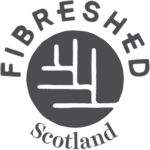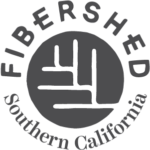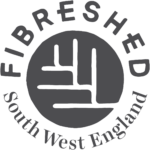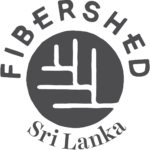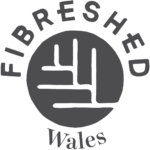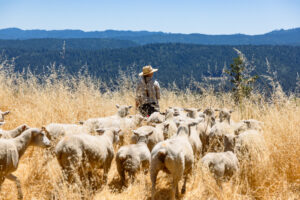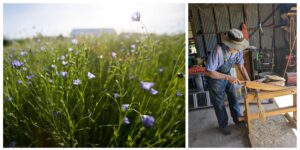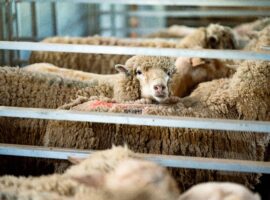Fibershed Affiliate Micro-Grant Program
Through Fibershed’s Affiliate Program, fiber producers, artisans, processors, designers, makers, and community organizers are developing regional fiber systems worldwide. Each year, Fibershed develops a pool of funding through the Affiliate Micro-grant program to support the Fibershed Affiliate Network in developing and implementing place-based community activities, research, prototyping, educational events, and other resource development to serve their communities and vision.
We’re honored to have funded and supported so many impactful projects worldwide through these $4,500 individual Micro-grants. Projects have included an initiative to design a reciprocal textile program in Fibreshed Ireland, a natural dye wastewater field trial in Southeast New England, prototyping small-scale fiber processing machinery to uplift local small farmers, and so many more. Since 2017, Fibershed has supported over 83 projects — totaling more than $231,000 of funding. Thank you to all of our supporters for helping us fund 17 projects for our 2023-2024 Micro-grant season.
'23-24 Micro-Grant Project Summaries
Established in 2022, Fibershed Brasil aims to connect, develop and improve local textile supply chains within the soil-to-soil context of the circular economy. Through educational tools and a non-competitive collaborative approach, they aim to empower and disseminate Brasil’s natural fiber diversity and the communities involved in every process. For this year’s micro-grant project, Fibershed Brasil is building an online hub and centralized space for Fibershed Brasil’s community, where they can showcase and connect producers, artisans, artists and designers willing to contribute towards a more regenerative and ecological future in the country’s textile industry. “By creating a centralized space for Fibershed Brazil and connecting the missing link between producer, craft workers, designers and the industry, we aim to achieve a connected and informed community of people working towards a future where local traditional communities are properly valued and empowered for their work, and where people can work with an abundant diversity of native natural fibers, respecting their local environment and empowering their local economy.”
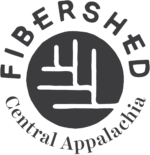
 Central Appalachia Fibershed and Acadiana Fibershed
Central Appalachia Fibershed and Acadiana Fibershed
The Central Appalachia Fibershed (CAF) is a network of local farmers, processors, manufacturers, designers, and more with a united mission to promote and support a regionalized textile and apparel supply channel, which includes all of West Virginia and the border counties of Pennsylvania, Maryland, Virginia, Kentucky, and Ohio.
The Acadiana Fibershed is dedicated to preserving the Acadian Brown Cotton heirloom seed and donates a portion of all cotton seed grown to the University of Louisiana, Lafayette, Cade Farm Seed Bank.
CAF has made great progress in building and modifying open-source tech processing machinery by Studio HILO for small and medium sized fiber farmers to process their raw fiber into yarns. Although Fibershed supported CAF in building and trialing the initial machines last year, resulting in the production of consistent yarns, more modifications are still needed to ensure usability for various fiber types. Acadiana Fibershed also faced similar issues with their mill accessibility, so together the two Fibersheds are hoping to develop a modular carding machine, whose open-source plans can be adjusted as needed for the fiber. “Further development and modification of Studio HILO’s processing machinery is needed to be usable by small fiber farmers for cotton and wool.”
The Chesapeake Fibershed follows the Chesapeake Watershed, extending through the greater Washington DC – Baltimore metropolitan areas and includes portions of Virginia, Maryland, Delaware, Pennsylvania, and West Virginia. Chesapeake Fibershed’s strategic goal is to find new markets for undervalued wool fiber — since the sole remaining buyer of pooled wool in the Mid-Atlantic region recently announced its closure. To reach those producers, Chesapeake Fibershed hopes to connect other producers and services within fibershed to help them market fiber and produce farms. With this year’s micro-grant, they hope to “integrate a database into the Chesapeake Fibershed website to provide a centralized information exchange within the region and to enlarge and connect fiber production/fabrication/marketing communities as a prelude to larger cooperative endeavors using local fiber, local dye and local labor.”
Dansk Fibershed develops regional and regenerative fiber communities across Denmark. Their vision is to provide know-how about breed-specific wool and inspire flock owners to consider the wool they produce worthy of making into yarn. There is an urgent need for natural fiber processing infrastructure since most wool produced in Denmark is considered a waste product. Dansk Fibershed wants to build a “Mobile Micro Spinning Mill” with focus on a spinning machine from Studio HILO, facilitating an open source mill to be shared between sheep farmers, sheep guilds, small yarn and fiber producers. The Mobile Micro Spinning Mill will morph into a tool for further experimentation and study of Danish wool. “Our project will be a starting point for the work establishing a Mini Mill in Denmark, which would help us produce yarn in larger quantities, based on knowledge gained from the project.”
Fibershed European Hub
The Fibershed European Hub connects all European-based Fibersheds to help connect their efforts and uplift their work. The European Hub proposes the development of an engaging website for Fibershed Europe, serving as a central hub to showcase the work of Fibershed Europe, its affiliates, foster partnerships,raise awareness, and address critical hurdles faced by the organization. The development of the website will establish Fibershed Europe’s mission creating visibility, awareness, partnerships, and advocacy towards the program. The Fibershed European Hub hopes to create an educational homebase for the different programs throughout Europe. “We have started discussions with several Fibersheds existing in Europe about what the formal relationship between Fibershed Europe and other affiliates will be. We hope to create a website that represents all of Fibershed in Europe.”
The Great Basin Fibershed was established in 2021 as an affiliate chapter of Fibershed, covering a significantly larger geographical area than many chapters. The high desert environment in the Great Basin within Nevada state requires a great deal more land to raise crops and animals to sustain a regional population. Their focus is on utilizing the natural botanical and animal resources present in the desert environment. Their micro-grant project, titled Mapping Nevada Wool, will focus on identifying existing wool producers in their region (roughly 104,500 square miles), what wool products are being produced from Nevada wool (as well as where that wool is going for production), and creating an online Nevada Wool map to be shared with all interested parties. “As more people embrace natural fibers and enjoy textile crafts like knitting, weaving, crochet, it is important that we encourage them to think about where their wool and yarn come from.”
Fibreshed Ireland creates a supportive network of farmers, crafters, processors and designers in facilitating an Irish regenerative fibre system based on local fibre, local dyes, local labour. With micro-grand funding, they hope to develop learning materials to address each of the 8 key concepts (biodiversity, habitat restoration, water catchment, natural productivity increase, farming wisdom, cultural heritage, community networks, and producer/consumer relationships). They hope to build on the Reciprocal Textiles Program started in the last micro-grant cycle to create engaging, high-quality education materials for producers and the public. “Although there are Irish organizations seeking to help farmers move to regenerative practices, their learning materials are not super informative or engaging. We have the knowledge to bridge this gap.”
The Fibershed Netherland foundation aims to develop — together with existing initiatives — circular, local textile, and fashion systems in the Netherlands; to build Land-to-Wardrobe systems that support the regeneration of land and bring about increased respect for the origin and value of our textile and clothing. The micro-grant will fund a Natural Fiber Stewardship – a stewardship model to anchor equitable collaborations in a just, bio-circular textile economy. With the Natural Fiber stewardship, they would like to support stakeholders and SMEs in the local value network with a collective stewardship holding. A holding company will become a ‘safe haven’ for bio-circular, nature-oriented, social and regional textile entrepreneurs who want to further develop their organization, service or company in collaboration with their local community and other relevant stakeholders. “The model is aimed at building a new textile economy through collaborations and an invitation for other entrepreneurs to join and be a part of a movement. “
Started in 2023, The New Mexico (NM) Fibershed is a community organization helping develop statewide fiber systems that build ecosystem and community health. They are doing work to preserve and expand upon New Mexico’s vast and varied local, cultural fiber traditions; to encourage environmental harmony; improve health; and contribute to economic equity. NM Fibershed is planting its first seeds in the rich, cultural fiber soil of many cultures and a long history of fiber production, beginning with assessment and education in Taos county, NM, and surrounding areas. In northern New Mexico’s high alpine desert, the primary and heritage fiber system is sheep for wool production. The micro-grant project will help the NM Fibershed connect with their producer community and set the foundation for their organizational work.
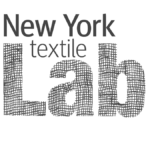 New York Fibershed/New York Textile Lab
New York Fibershed/New York Textile Lab
The New York Textile Lab Fibershed links together designers, end users, and local fiber systems to foster a resilient textile economy in New York State. New York Textile Lab’s micro-grant will help fund Phase 2 of their project “Planning Seasonal Textile Flows from Raw Fiber to Finished Goods” to help fiber designers coordinate their production plans with farmers for fiber needs. New York Textile Lab will to work with software developers to eventually bring this peer-to-peer application to the entire affiliate network. “Our goal is to develop a transparent, open-source software to support the planning and economic coordination required to grow a bioregional textile industry.”
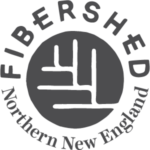 Northern New England Fibershed
Northern New England Fibershed
The Northern New England Fibershed (NNE) aims to reinvigorate regional natural fiber systems in Vermont, New Hampshire, and Maine. Their mission supports individuals and businesses within the region to bring fiber from raw material to finished product. NNE Fibershed promotes regenerative farming practices that are rooted in traditional Indigenous knowledge to nourish the soil and protect the land. The micro-grant will fund market research, education, and project management required to present their vision to investors and the community at large, emphasizing the importance of utilizing local and sustainable farming practices to the region. The project will introduce a farming practice that will be beneficial to the agriculture that doesn’t currently exist. “It is our understanding that there are no long staple fiber mills that process hemp and flax from stalk to long line yarns and textiles in the entire western hemisphere. We want to change this.”
The Rust Belt Fibershed consists of 250 mile radius outside of Cleveland, Ohio including parts of Michigan, southern Ohio, Western Pennsylvania and Western New York. Through this project, the Rust Belt Fibershed will continue year two of their Student Ambassador pilot program, working directly with local college staff and students to foster friendship, creativity, and a greater respect for the environment within their Fibershed region.The four-session curriculum scope will train college students to be ambassadors, complete with any hindsight notes with feedback or suggestions for changes. They have previously partnered with Kent State’s fashion program and are hoping to continue to foster education with universities and students.“We need advocates for creating local regenerative systems! We have opportunities to plug students into internships within our fibershed and give them leadership skills to create more local community and idea sharing events.”
Fibreshed Scotland is a growing community of producers, makers, consumers, and educators who work with, and promote locally produced wool, linen, leather and natural dye products. They aim to develop a Scotland-wide, regenerative fibre community by increasing connectivity between farmers and artisans, exploring feasibility of bringing back mid-scale processing, and promoting skill sharing to ensure the natural and cultural heritage of Scottish textiles continues in an environmentally responsible and ethical way. Flax and linen are no longer grown at scale in Scotland despite the textiles being an important part of Scotland’s agriculture and textile heritage. This micro-grant will help achieve a fibre flax seed sovereignty in Scotland by establishing a Scottish Fibre Flax Seed Bank, involving input from a diverse group of stakeholders. “We hope that by establishing a Scottish flax fibre seed supply, it will empower people to become flax growers, raise the quality of the flax fibre produced and restore a Scottish flax economy in a climate beneficial way.”
Southern California Fibershed encompasses the region south of San Luis Obispo to San Diego, from the Pacific Coast to the Arizona border. The So Cal Fibershed, launched in Summer 2019, encourages community building and connections between textile artists, designers, fiber farmers, processing mills, suppliers, and retail businesses. With the microgrant, they hope to develop a multi-channel membership and social platform where the community can find each other and engage in group conversation: for creative topics such as natural dye advice, resource identification, and for working groups. They also plan to support Year two of their Fiber Pool, to connect local designers with local farmers and raw materials. “A proper community, we should remember also, is a commonwealth: a place, a resource, an economy. It answers the needs, practical as well as social and spiritual, of its members– among them the need to need one another.” -Wendell Berry
South West England Fibershed builds a community of fibre and dye growers, processors, makers and manufacturers across the South West to start a conversation about how to produce more home-grown textiles and garments in a more healthy, resilient and regenerative textile ecosystem. Opportunities to produce bioregional textiles are currently restricted due to limited processing facilities. Processing costs are high and lead times are long in the UK and there is a growing demand and interest in this sector but farmers and growers are cautious to invest in the crops and fibres until supply chains are established to support their viability. “This micro-grant project will scope and model infrastructure to better enable small scale local fibre and dye processing that is needed to support bioregional textile production in South West England. The model could also be replicated and tailored to other UK and European regions.”
Sri Lanka has a long and rich history of textiles with several indigenous peoples providing rich cultural heritage and hereditary skills. In the 1960s-1970s, Sri Lanka had a thriving economy with three major textile factories: “thultex”, “vertex” and “Putext”. However, this industry collapsed after 1977 due to the introduction of an open economy policy in the wrong form. Fibershed Sri Lanka intends to once again support, empower, transform, and grow the local communities that already existed in Sri Lanka. The micro-grant will mainly focus on advocating, improving, and promoting local fibres, local dyes, and local labour/economic systems. Workshops created will include working with local artisans, training development for farmers, educating local university students, creating marketplaces, and producing product videos. “Fibershed Sri Lanka identified the most needed community group in Polonnaruwa district who are still working with natural fiber products and looking for a business transformation. We hope to share the Fibershed vision with the selected community and mobilize a few women farmers as project leaders in the community to work as a part of the Fibershed project team and in support of family.”
The Wales Fibreshed is in the very early stages of creating a collaborative network of regenerative fibre farmers – in particular fibre flax, sheep wool and plant dyes. They are heading into the first year of growing fibre flax at scale on an organic farm in Swansea. Soon, Fibershed Wales hopes to develop an online directory of fibre farmers and textile artists/designers whose work demonstrates an understanding of and a commitment to creating a regional, soil-to-soil regenerative textile system. The micro-grant aims to establish and connect the Welsh networking strand of Fibreshed. “Creating an established FW network will encourage research and development within this area. It is intended that round tables, meetings, conference and in person events will provide the opportunity to network, and spark the conversations needed.”
